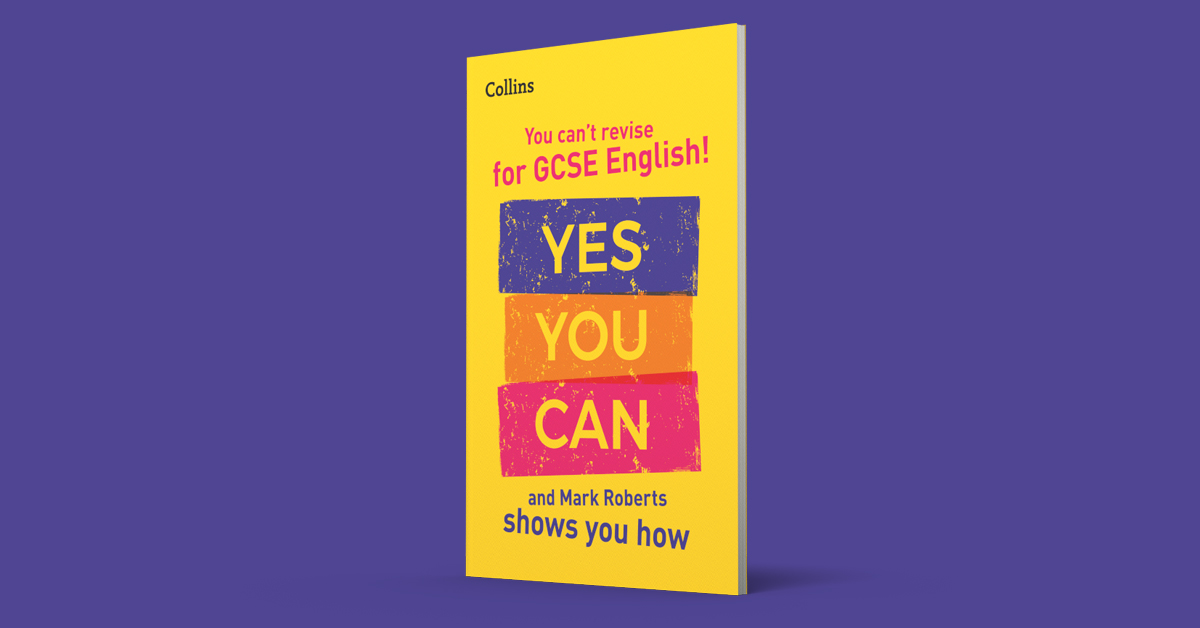Students regularly tell teacher Mark Roberts that they find it hard to revise for their GCSE English exams. His new book, You Can’t Revise for GCSE English! Yes you can, and Mark Roberts shows you how explores why that common belief is wrong – and how all you really need is an organised, step-by-step approach to English revision.
The book equips GCSE English students with essential techniques for revising tricky exam topics, such as unseen poetry and creative writing, and explores effective revision methods including:
- Making good flashcards
- Identifying and building up a bank of ‘killer quotes’
- Using context successfully
- …and much more!
[mks_button size=”medium” title=”Order You Can’t Revise for GCSE English” style=”rounded” url=”https://collins.co.uk/products/9780008392802″ target=”_blank” bg_color=”#4d4395″ txt_color=”#FFFFFF” icon=”” icon_type=”” nofollow=”0″]
 Mark Roberts is Assistant Principal at a mixed 11–18 comprehensive school in Devon. Previously, he worked at an inner-city comprehensive for boys in Manchester.
Mark Roberts is Assistant Principal at a mixed 11–18 comprehensive school in Devon. Previously, he worked at an inner-city comprehensive for boys in Manchester.
Together with Matt Pinkett, Mark is the author of Boys Don’t Try? Rethinking Masculinity in Schools.



